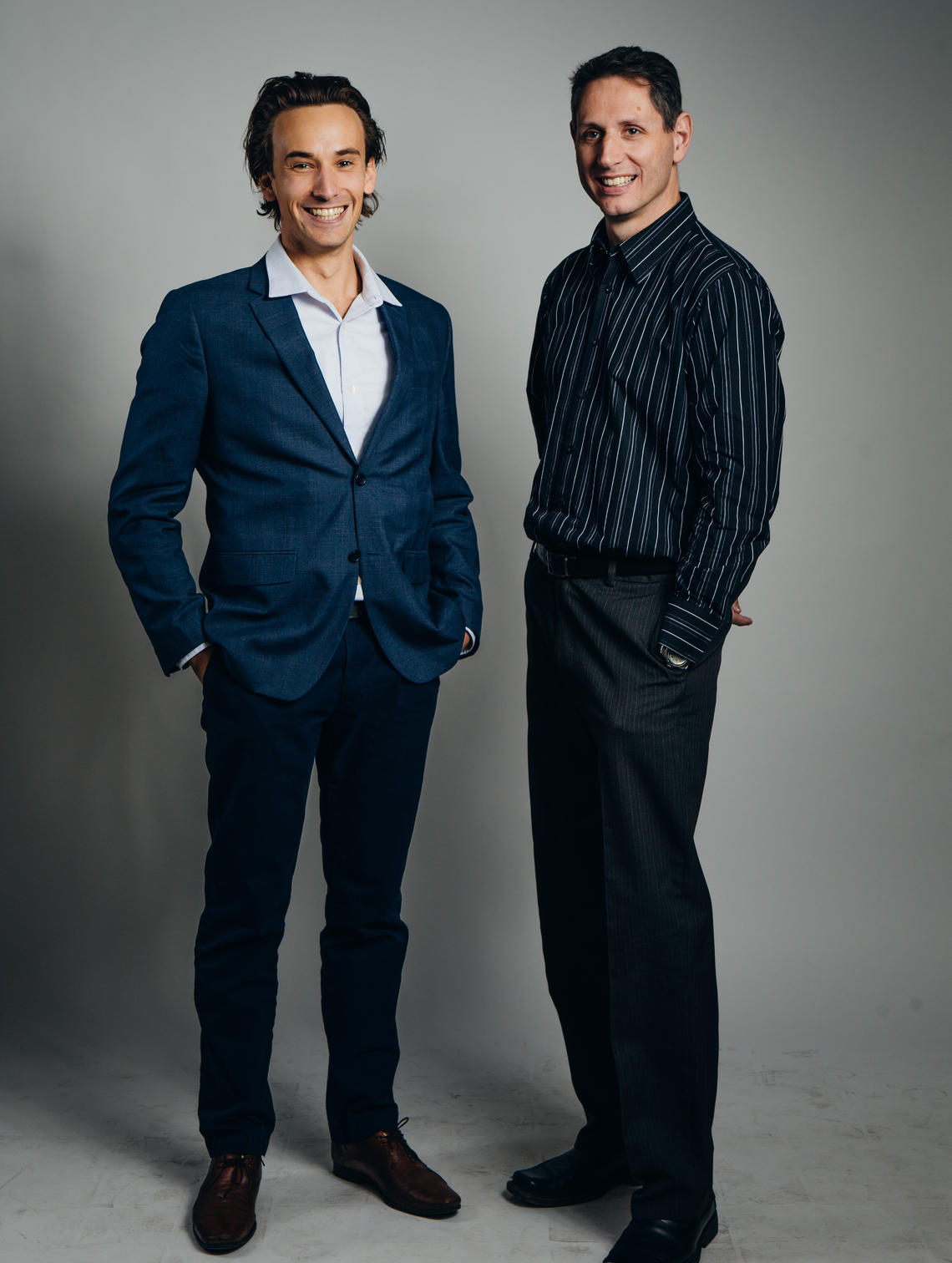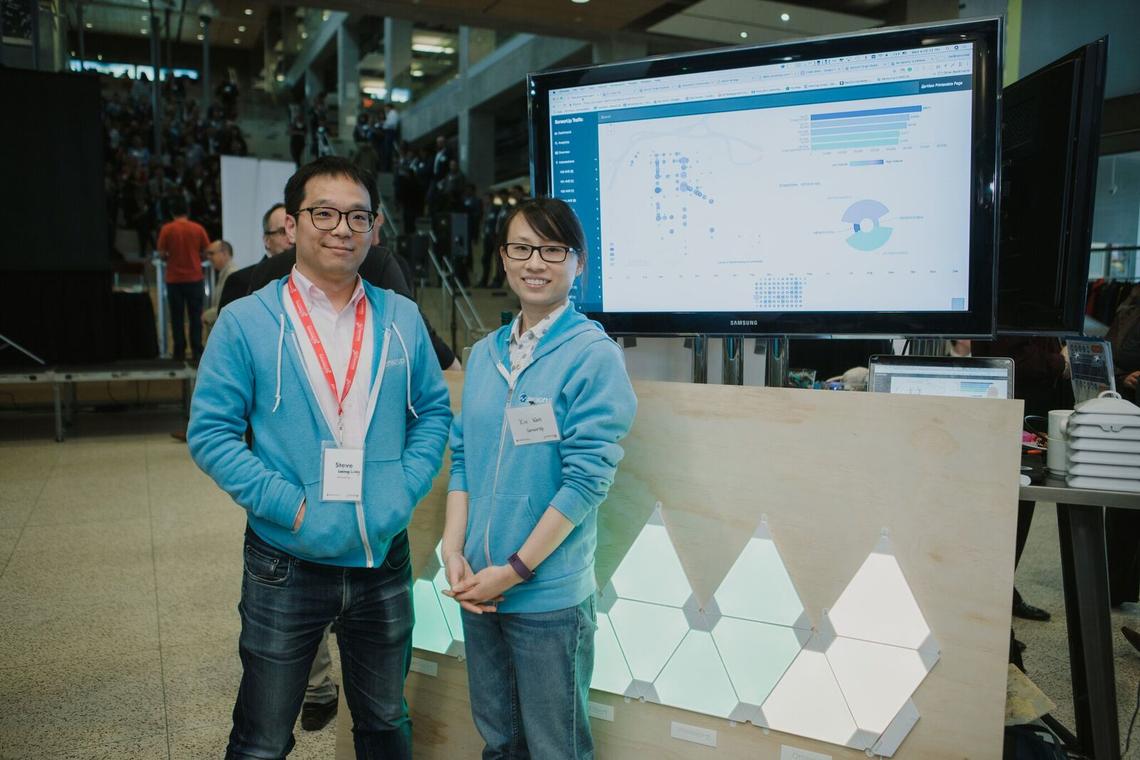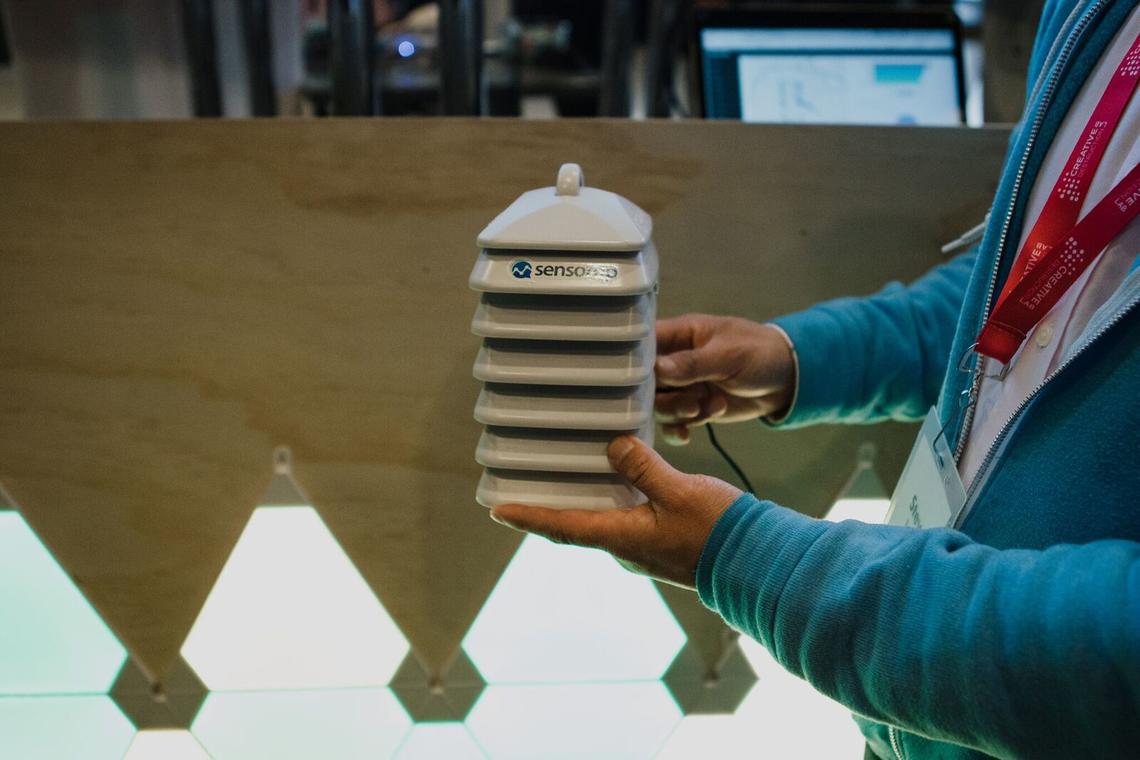May 14, 2018
Meet the ventures in the first Creative Destruction Lab Rockies cohort

Pierre Wijdenes, left, and Colin Dalton of Neuaura.
Kelly Hofer, for the Haskayne School of Business
From using artificial intelligence to mine data to accessing the Internet of things, the Creative Destruction Lab Rockies (CDL-R) is matching new science and technology ventures with entrepreneurs and investors to help get products to market. As well as some funding and help identifying objectives and deliverables, the companies get coaching and support from mentors and MBA students. Here’s a look at three of the ventures in CDL-R:
Neuraura: Technology that records brain cells communicating
Neuraura has developed an electronic chip that intercepts and reads signals between brain cells. Such technology can provide information that furthers our understanding of cognitive functions, like learning and memory, and helps doctors diagnose and treat people with neurological conditions such as Parkinson's and epilepsy. When implanted in the brain, the “bionic hybrid neuro chip” records high-resolution signals for weeks at a time, at a much higher resolution than any existing technology.
CDL-R has been “absolutely amazing” in helping the biomedical researchers at Neuraura “navigate the maze” from the lab to market where the chip can help countless people. “CDL-R has helped us change our focus. In the morning you talk to scientists, in the afternoon you talk with investors and later in the day you talk to lawyers,” says Pierre Wijdenes, one of the founders of Neuraura.
“It’s an adventure, we’re learning as we go, but we feel very confident that we are surrounded by the right people.”
Wijdenes developed the chip during his PhD in biomedical engineering along with Naweed Syed, scientific director of the University of Calgary, Cumming School of Medicine’s Alberta Children’s Hospital Research Institute, member of the Hotchkiss Brain Institute, and Colin Dalton, adjunct professor in the Department of Electrical and Computer Engineering at the Schulich School of Engineering.

Steve Liang, associate professor of geomatics engineering, left, and Xin Wen of SensorUp.
Kelly Hofer, for the Haskayne School of Business
Pure Strategy Inc: Artificial intelligence to analyze data
Pure Strategy Inc has developed an artificial intelligence platform, the Automated Neural Intelligence Engine (ANIE), that proactively provides companies insights, so employees can make faster, data-driven decisions. ANIE is like having an AI co-worker constantly monitoring the data streams flowing into the company, uncovering hidden patterns and getting useful information to employees that need it.
ANIE can analyze mountains of dense information quickly and efficiently, using cutting-edge machine learning and natural language understanding. Using ANIE aligns employees to corporate objectives and frees up the time needed for them to do higher-value work that improves business outcomes.
“Our business has changed significantly during the time we've been in CDL-R,” says Briana Brownell, founder and CEO of Pure Strategy Inc. “We heard many different perspectives as a result of being in the program. We added those anecdotes to information from elsewhere for our company strategy. It made our conviction about what we wanted to accomplish as a company much greater and our vision for what we wanted to be much clearer.”
CDL-R is helping Pure Strategy identify the right markets for its cognitive technology.

SensorUp wants to make sure the many billions of devices around the world can work.
SensorUp: Mix and match on the Internet of things
It’s one thing to have your thermostat hooked up to the Internet of things (IoT) so you can adjust the temperature in your house from work, but soon cities and other giant systems will be wired up, too. And Steve Liang, the founder and CEO of SensorUp, wants to make sure that the many billions of devices around the world can work together.
SensorUp has developed an open framework that connects devices, data and applications on the IoT. The non-proprietary system ensures different systems can “mix and match,” which will help transform society with everything from cities reducing emissions from traffic to first responders dealing with natural and other disasters.
“CDL-R transformed SensorUp,” says Liang, associate professor of geomatics engineering at the Schulich School of Engineering. “We increased our workforce by 50 per cent — from seven to 11 full-time people — and we expect to grow our revenue at least 100 per cent this year.”
Most important, Liang says, CDL-R helped SensorUp better understand the market opportunities and provided “insightful and actionable” advice to capitalize on them. “The advice is from brilliant minds that have grown startups to multi-million-dollar companies. This ‘battle-proven’ advice is not easy to find, but CDL-Rockies provides it.”
Liang, the director of the GeoSensorWeb Laboratory at UCalgary, researches Geospatial Information and Communication Technology (GeoICT), specifically the Sensor Web, a geospatial information infrastructure that connects diverse sensor networks.
